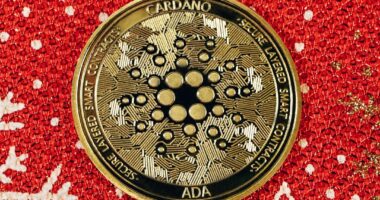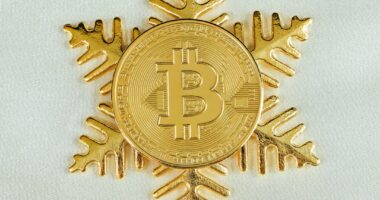Non-fungible tokens (NFTs) are unique digital assets stored on blockchain technology. Unlike fungible cryptocurrencies such as Bitcoin or Ethereum, NFTs are indivisible and non-replicable, giving them distinct value. This uniqueness has led to increased interest and investment in digital art and collectibles.
NFTs have created new opportunities in the digital art market for artists, collectors, and investors. The process involves minting digital assets on a blockchain platform, establishing ownership and provenance. NFTs can then be traded on various online marketplaces, with transactions recorded on the blockchain for transparency and security.
The emergence of NFTs has sparked global discussions about the future of art, ownership, and the digital economy. This technology has both proponents and critics, as it represents a significant shift in how digital assets are valued and traded. The long-term impact of NFTs on various industries and creative fields remains to be seen, but their current influence on the digital landscape is undeniable.
Top Platforms for Selling NFTs: A Comprehensive Overview
Leading NFT Marketplaces
One of the most well-known platforms is OpenSea, which offers a wide range of digital assets, including art, domain names, virtual worlds, and more. OpenSea provides a user-friendly interface for creating, buying, and selling NFTs, making it a popular choice for both creators and collectors. Another leading platform is Rarible, which allows artists to create and sell their own NFTs without the need for coding skills. Rarible also features a decentralized autonomous organization (DAO) that gives token holders a say in platform governance.
Specialized NFT Marketplaces
Other notable NFT marketplaces include Foundation, known for its curated selection of digital art and its invitation-only model for creators; SuperRare, which focuses on high-quality, limited-edition digital art; and Nifty Gateway, which offers a range of digital art and collectibles from well-known artists and brands. Each platform has its own unique features and community, catering to different types of creators and collectors.
The Future of NFT Marketplaces
With the growing popularity of NFTs, new platforms are constantly emerging, offering innovative ways to buy, sell, and trade digital assets. As the NFT market continues to evolve, we can expect to see even more unique and specialized platforms emerge, providing new opportunities for creators and collectors alike.
NFT Jobs: Exploring Opportunities in the NFT Marketplace
The rise of NFTs has created a range of new job opportunities in the digital art and blockchain space. From artists and creators to developers and marketers, there is a growing demand for talent with expertise in NFTs and blockchain technology. One of the most in-demand roles is that of an NFT artist or creator, who specializes in producing digital art and collectibles for sale as NFTs.
These artists often have a strong understanding of blockchain technology and are skilled in creating unique and compelling digital works. In addition to artists, there is also a need for developers who can build and maintain the infrastructure for NFT marketplaces and blockchain platforms. These developers may work on smart contracts, token standards, or platform features that support the creation and trading of NFTs.
Furthermore, there are opportunities for marketers and community managers who can help promote NFTs and engage with collectors and enthusiasts. As the NFT marketplace continues to evolve, there will likely be an increasing demand for professionals with expertise in digital art, blockchain technology, and online marketplaces.
NFT Artists: Showcasing Success Stories and Best Practices
| Artist | Number of NFTs Sold | Total Earnings | Average Price per NFT |
|---|---|---|---|
| Alice Johnson | 25 | 10 ETH | 0.4 ETH |
| Bob Smith | 15 | 8 ETH | 0.53 ETH |
| Charlie Brown | 30 | 15 ETH | 0.5 ETH |
NFTs have provided a new avenue for artists to showcase their work and monetize their digital creations. Many artists have found success in the NFT marketplace, earning significant income from the sale of their NFTs. One such success story is that of Beeple, a digital artist who made headlines when his NFT artwork sold for $69 million at auction.
Beeple’s success has inspired other artists to explore the potential of NFTs as a means of reaching new audiences and generating revenue from their art. In addition to individual success stories, there are also best practices that artists can follow to maximize their chances of success in the NFT marketplace. These include creating high-quality, original artwork that stands out in a crowded market; engaging with the community through social media and online forums; and leveraging partnerships with NFT platforms and collectors to promote their work.
By staying informed about trends in the NFT space and adapting their strategies accordingly, artists can position themselves for success in this rapidly evolving market.
NFT News: Staying Updated on the Latest Trends and Developments
Staying informed about the latest news and developments in the NFT space is crucial for anyone involved in the digital art marketplace. With new platforms, trends, and controversies emerging regularly, it’s important to stay up-to-date on industry news to make informed decisions about buying, selling, or creating NFTs. One way to stay informed is by following industry publications and blogs that cover NFTs and blockchain technology.
These sources often provide analysis of market trends, interviews with industry leaders, and updates on regulatory developments that may impact the NFT marketplace. In addition to industry publications, social media platforms such as Twitter and Discord are popular channels for staying connected with the NFT community and receiving real-time updates on new releases, artist collaborations, and platform announcements. Many NFT platforms also have their own newsletters or community forums where users can stay informed about platform updates and upcoming events.
By staying engaged with these sources of information, participants in the NFT marketplace can stay ahead of the curve and make informed decisions about their involvement in the digital art space.
Tips for Selling NFTs: Strategies for Success in the Marketplace

Creating a Compelling Narrative
To sell NFTs successfully, it’s essential to create a captivating story around the artwork or collectible. This can be achieved by sharing the inspiration behind the work, the creative process, or any unique features that make it stand out. By doing so, artists can establish a deeper connection with their audience and increase the perceived value of their NFT.
Building an Online Presence
Engaging with the community is crucial for selling NFTs. Artists can achieve this by maintaining an active presence on social media, participating in online forums, and attending virtual events. This helps build a loyal fan base, generates buzz around NFT releases, and connects artists with potential buyers.
Collaboration and Expansion
Collaborating with other artists or participating in group exhibitions can significantly expand an artist’s reach and attract new collectors. By leveraging these strategies, artists can increase their chances of selling their NFTs at competitive prices while building a sustainable presence in the digital art marketplace.
Navigating the Future of NFTs and the Digital Art Market
As NFTs continue to gain traction in the digital art market, it’s clear that this technology has the potential to reshape how we create, buy, sell, and collect art in the digital age. While there are still challenges to address, such as environmental concerns related to blockchain energy consumption and issues around copyright and ownership rights, the opportunities presented by NFTs are undeniable. Artists have a new way to monetize their work, collectors have access to a wider range of digital assets, and investors have an opportunity to participate in an emerging asset class.
Looking ahead, it will be important for stakeholders in the NFT marketplace to address these challenges while also exploring ways to make the space more inclusive and sustainable. This could involve initiatives to reduce the environmental impact of blockchain technology, establish clearer standards for copyright and ownership rights, or create opportunities for underrepresented artists to thrive in the digital art space. By working together to address these issues, we can ensure that NFTs continue to evolve as a positive force for innovation in the art world while creating new opportunities for creators, collectors, and investors alike.
If you’re looking to learn more about the world of NFTs and how to sell them, you might want to check out this article on NFT-Jobs.com. The article titled “Hello World” provides a great introduction to the NFT market and offers valuable insights on how to get started with selling NFTs. You can read the full article here.
FAQs
What are NFTs?
NFTs, or non-fungible tokens, are unique digital assets that represent ownership or proof of authenticity of a specific item or piece of content, such as art, music, videos, and more.
Where can I sell NFTs?
You can sell NFTs on various online platforms, including dedicated NFT marketplaces like OpenSea, Rarible, and Foundation, as well as through certain cryptocurrency exchanges and auction sites.
How do I choose where to sell my NFTs?
When choosing where to sell your NFTs, consider factors such as the platform’s user base, fees, ease of use, and the type of NFTs they specialize in. It’s also important to research the platform’s reputation and security measures.
What are the fees associated with selling NFTs?
Fees for selling NFTs can vary depending on the platform, and may include listing fees, transaction fees, and royalties. It’s important to carefully review the fee structure of each platform before listing your NFTs for sale.
Can I sell NFTs on social media or my own website?
While some artists and creators have successfully sold NFTs through social media or their own websites, it’s generally recommended to use established NFT marketplaces for greater visibility, security, and access to a larger audience of potential buyers.
What should I consider before selling NFTs?
Before selling NFTs, it’s important to consider factors such as the legal implications of ownership and copyright, the potential environmental impact of blockchain technology, and the long-term value and market demand for the specific NFTs you plan to sell.





